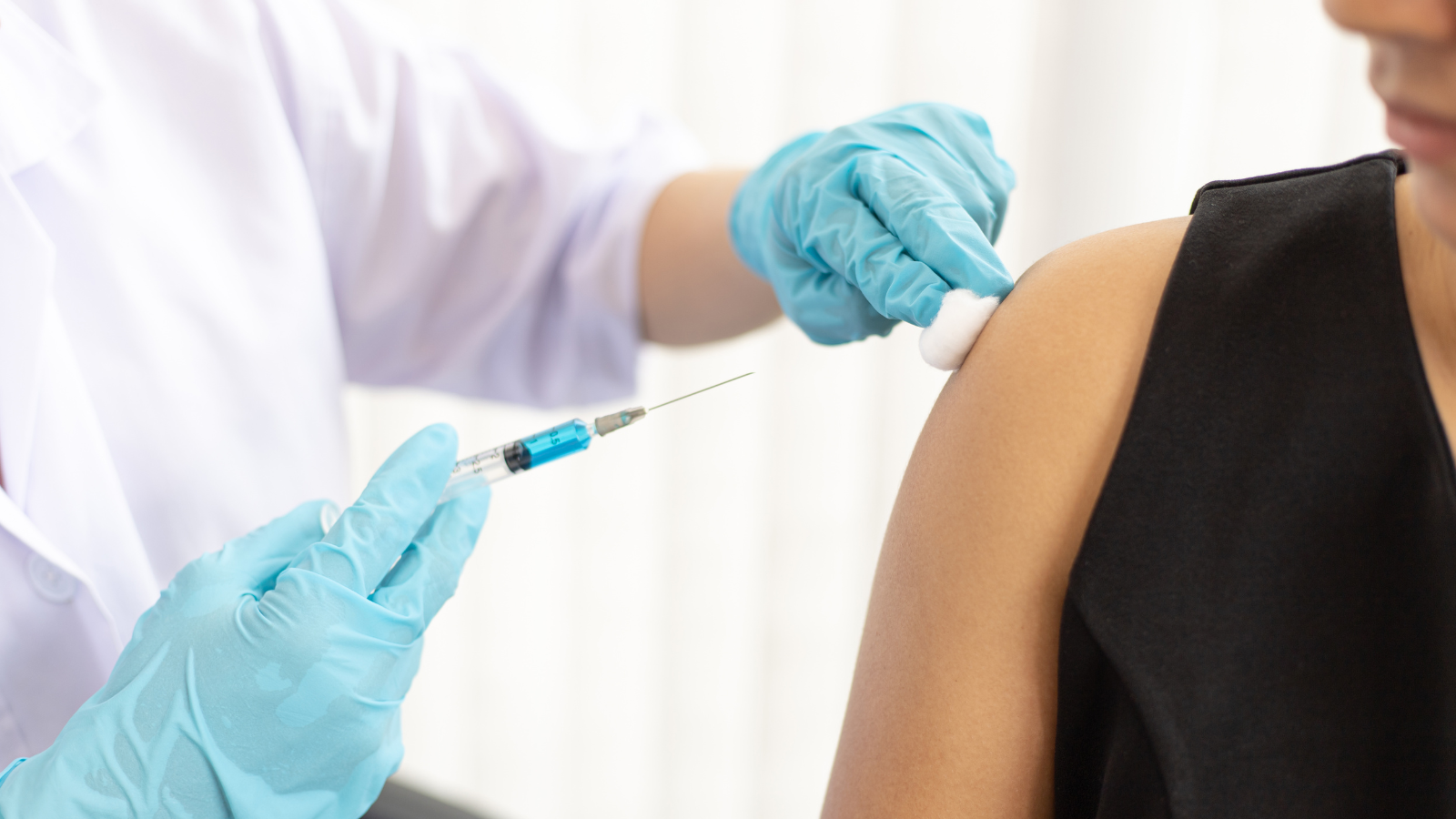
As Vaccine Rates Drop Nationally, They’re Rising In Connecticut
By Joe O’Leary
December 16 @ 10:15 am

Connecticut has seen vaccination rates climb even amid national turbulence related to vaccines and declining childhood immunization rates around the country, according to data from the Centers for Disease Control and Prevention.
In November, the Kaiser Family foundation found that vaccination rates were falling across the United States. The MMR vaccine, which provides protection against measles, mumps and rubella, has continued to see uptake decline. From 2019-2020 to 2023-2024, the number of states with more than 95% of students vaccinated fell from 20 to 11, while states with school vaccination rates under 90% rose from just three to 14.
On a state-by-state basis, data continued to show declines in childhood vaccinations with the DTaP, polio and varicella vaccines all falling from 95% to 93%. That’s below the commonly accepted threshold for those vaccines, where coverage of 95% helps prevent community transmission of diseases like measles, and represents more than 280,000 children nationwide who remain unprotected.
There’s a likely correlation between that decline in vaccination coverage and the CDC reporting that there had been 16 measles outbreaks, defined as three or more related cases, in the United States in 2024. Comparably, in 2023, there were just four outbreaks.
Complicating matters to improve vaccination rates is growing mistrust of the scientific breakthrough. Robert F. Kennedy Jr., the Trump administration’s current nominee to lead the federal Department of Health and Human Services, has publicly expressed hesitation about vaccines including the MMR vaccine.
Kennedy has been tied to a measles epidemic in American Samoa in 2019 where more than 80 children died from the disease; Kennedy visited American Samoa and discouraged childhood vaccination.
While vaccination rates are falling elsewhere, in Connecticut, they have risen. The Connecticut Department of Public Health recently published an update that found state kindergarteners’ uptake of the MMR vaccine was at 97.7%, a full four points ahead of the national average. It rose by 0.4% in the last year, and in the process, there was a 3% increase in individual schools with MMR vaccination rates at or above 95%.
This aligns with CDC data, which found Connecticut medical exemptions rose by 0.1% in 2024, while non-medical exemptions fell by 0.4%.
Why is Connecticut in such good standing compared to the rest of the country? It likely involves legislation put in place in 2021, spearheaded by Senate Democrats, to eliminate the nonmedical exemption to vaccinations, where the state was the sixth nationally to end such a policy, according to the Associated Press.
Children with existing nonmedical exemptions were allowed to preserve them, and medical exemptions to vaccinations are still allowed, but removing the exemption came after several years of declining vaccination rates combined with an increase in use of the nonmedical exemption.
A key aspect of the legislation came from the belief that parents opposed to vaccination would claim a nonmedical exemption on religious grounds, even if their religion did not oppose vaccination itself.
Before the ban, the nonmedical exemption’s use rose 25% in one year as overall coverage rates dropped, according to a Hartford Courant editorial published in 2019. Meanwhile, the American Bar Association said in 2022 that research found just the Dutch Reformed Church, Christian Scientists and four faith-healing organizations opposed vaccines theologically, and several of those religions allowed for vaccination on a case-by-case basis.
In 2021, State Sen. Saud Anwar, a South Windsor Democrat who now serves as Senate chair of the Public Health Committee, said that vaccines serve as an important safety net — both for the people who take them and for those who cannot receive them due to medical complications.
“We have seen in recent years, both statewide and nationally, the consequences of reduced vaccination rates; they lead to outbreaks of diseases we have previously controlled,” Anwar said.
The Connecticut Department of Health recommends families ensure their children receive protection against illnesses that can be prevented or protected against by vaccination. Vaccines are available at pharmacies and doctor’s offices statewide.
Share this page: